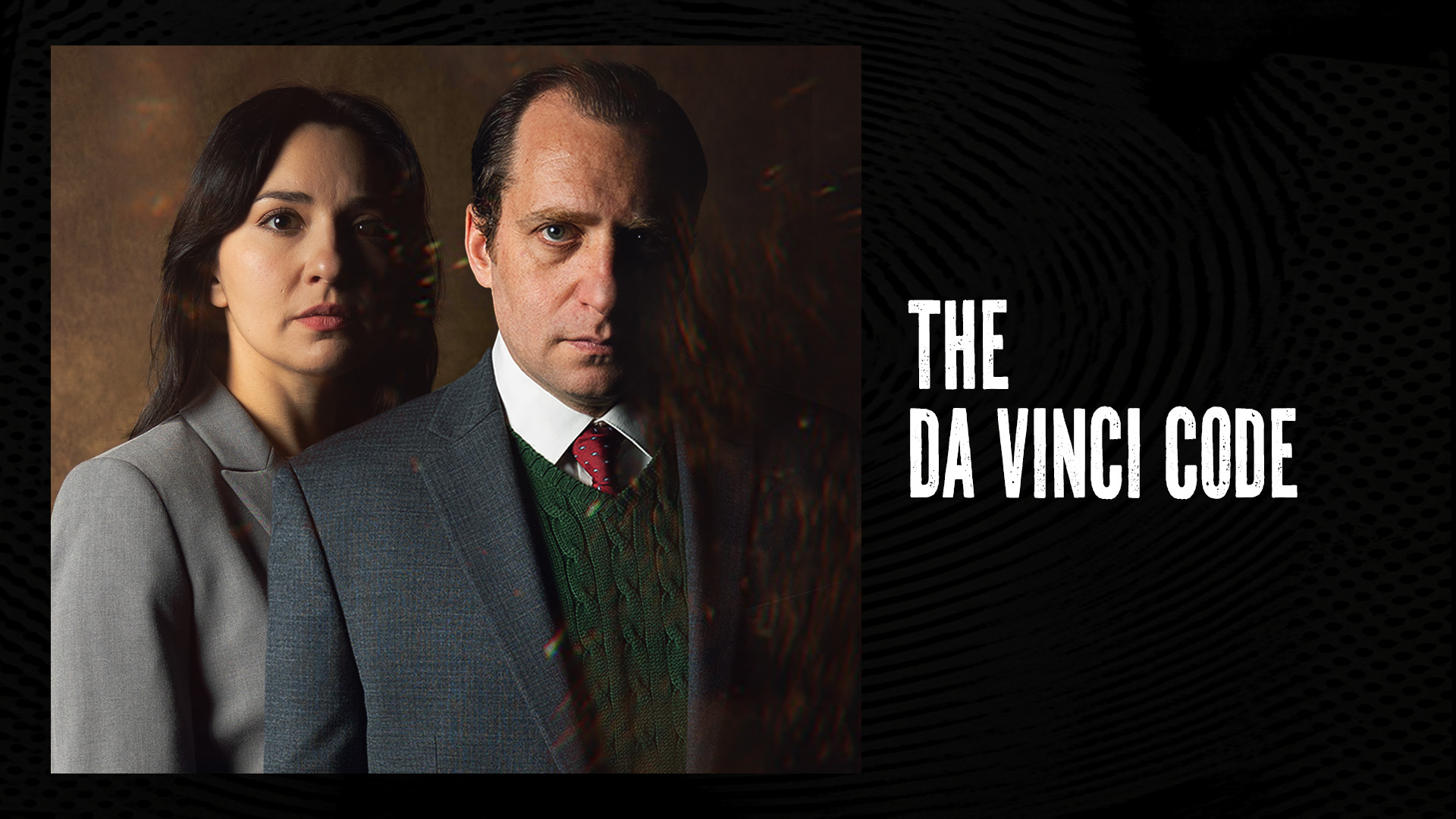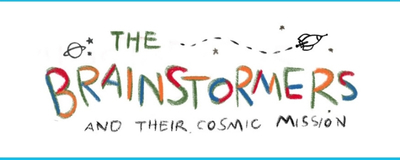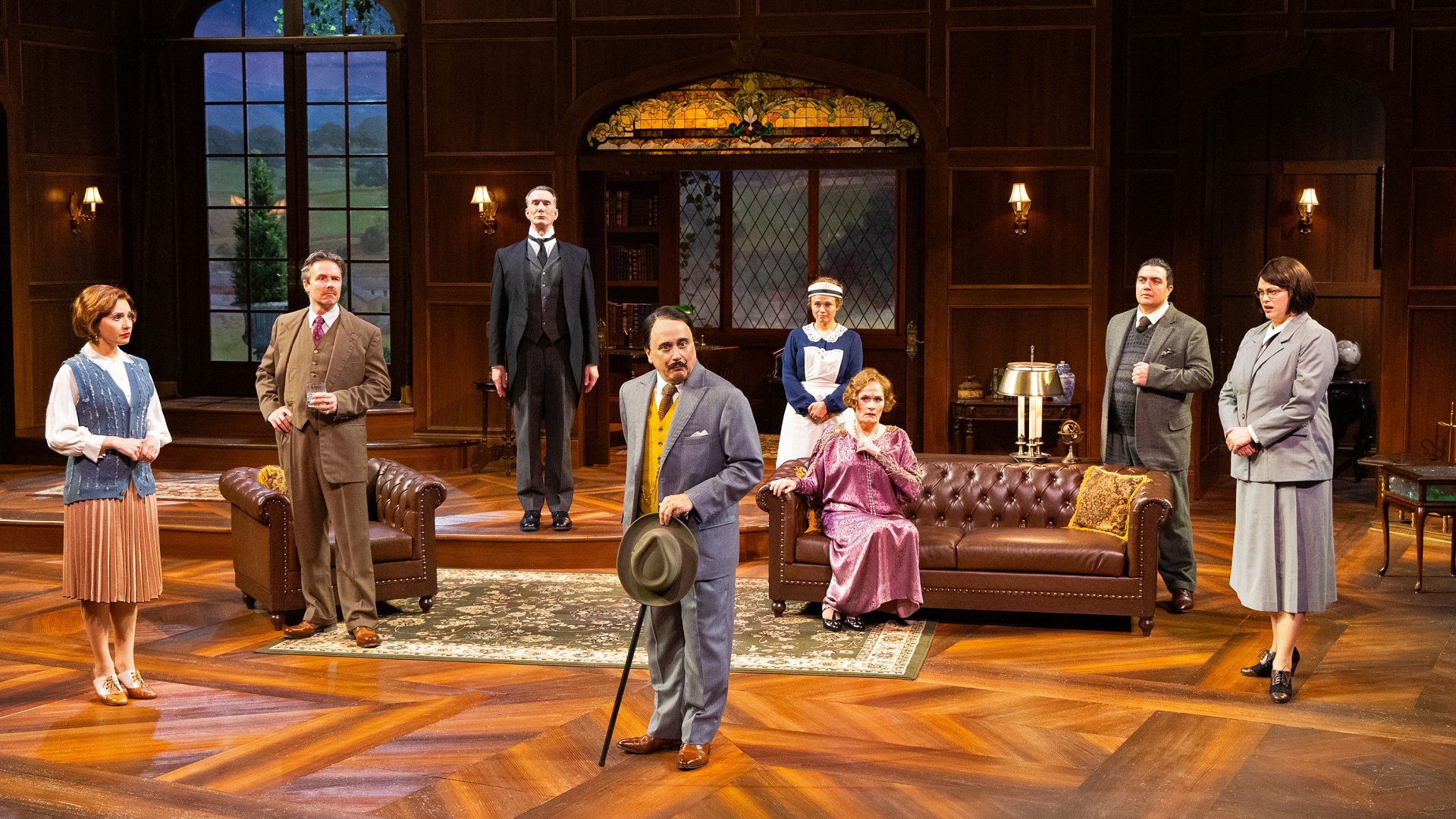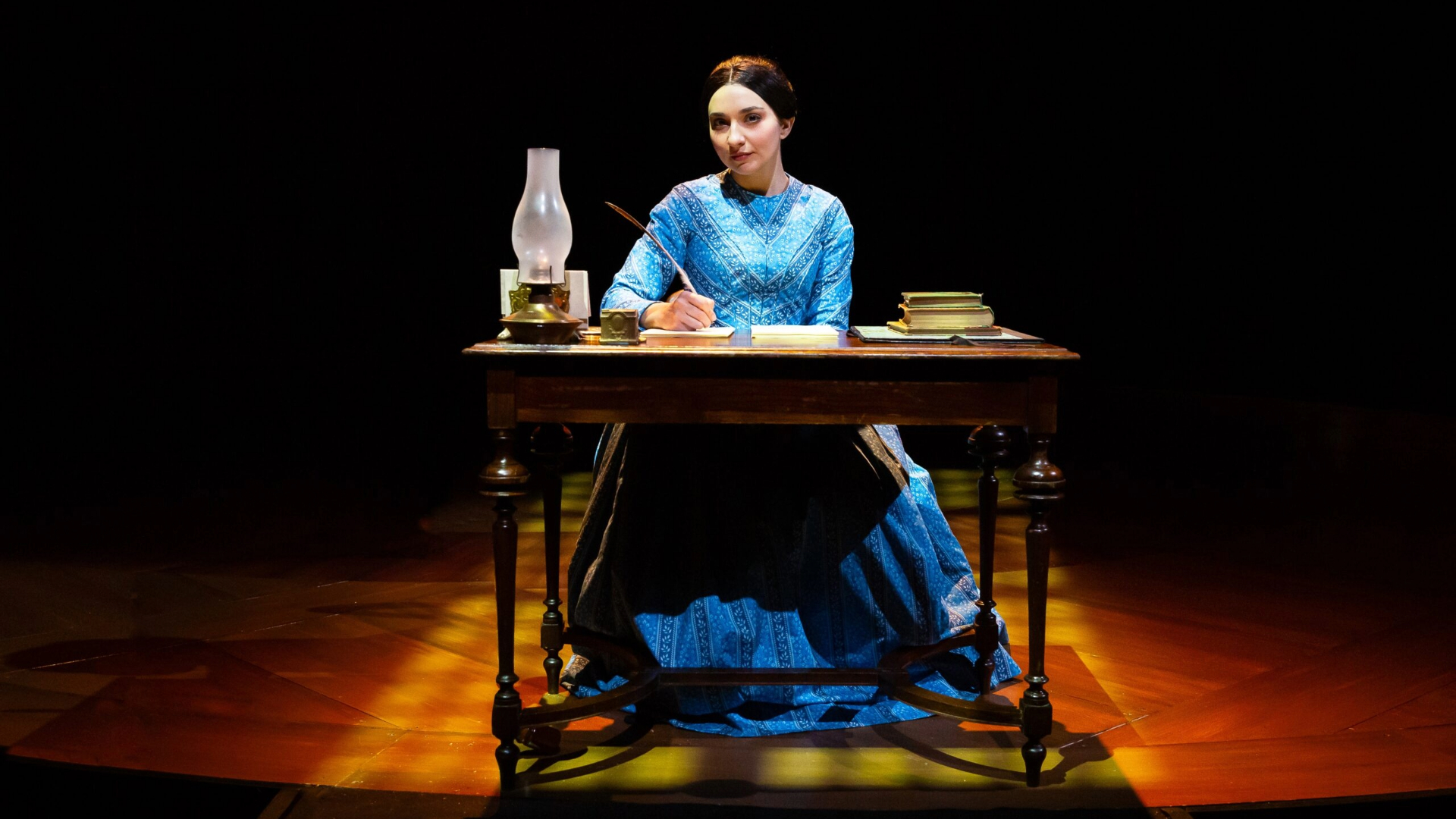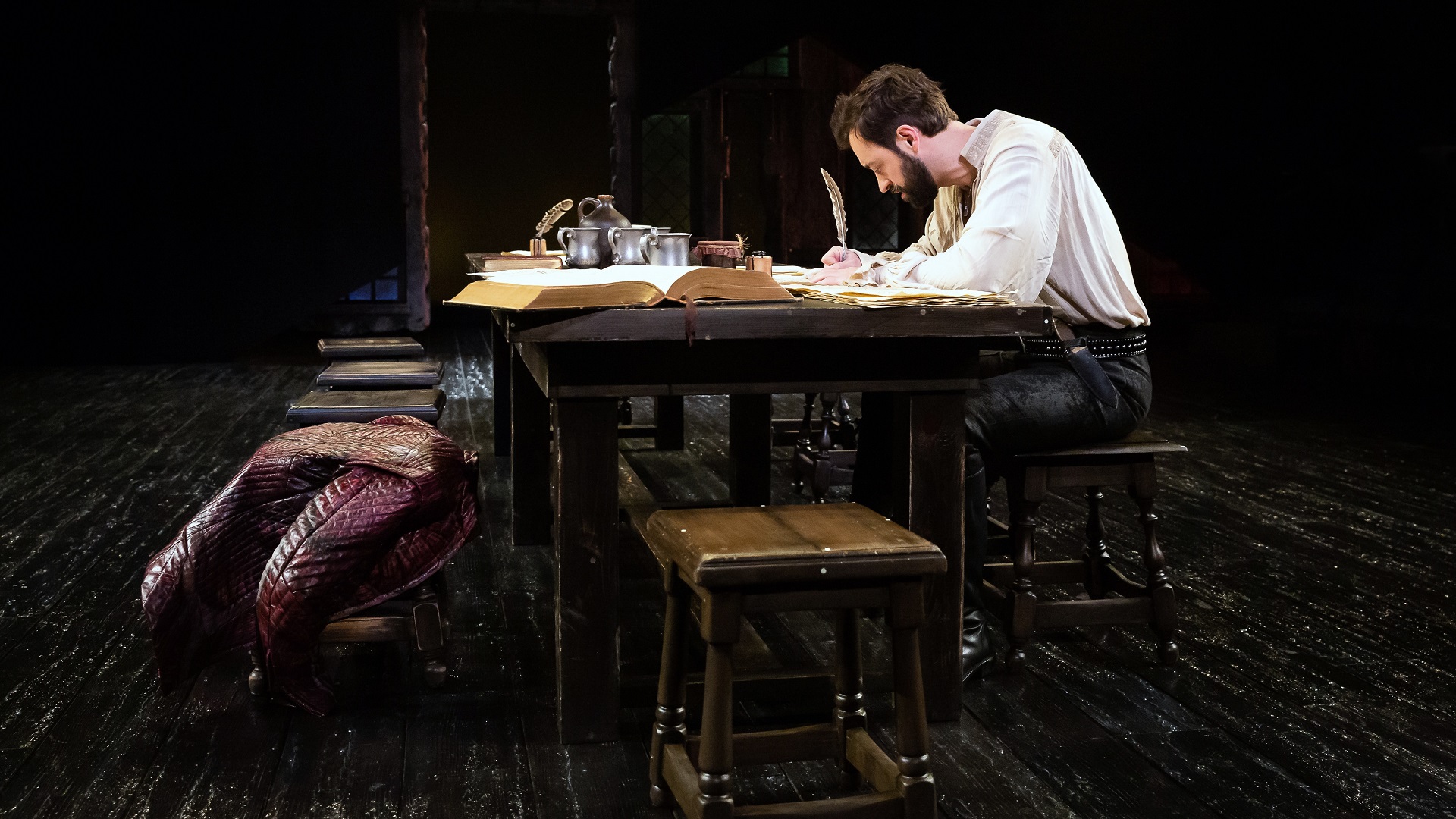What does it mean to present an unfinished Thornton Wilder play?
By Bradley Michalakis, Alley Theatre Head of Dramaturgy
This Spring, Alley Theatre will be presenting the first-ever production of an unfinished play by renowned American dramatist Thornton Wilder. But what does it mean to present an unfinished play? How is it possible that nearly 50 years after Wilder’s death, The Emporium will finally appear before an audience?
The story begins at the Beinecke Rare Book and Manuscript Library at Yale, where playwright Kirk Lynn spent hours reading through Wilder’s handwritten notes, unaware that they contained the blueprint for a third original play. With the permission of the Thornton Wilder estate, Kirk set out on the gargantuan endeavor of sifting through over 300 pages of dialogue, as well as copious journals and notes outlining the concept for this new play.
This task isn’t as simple as transcribing the scenes that Wilder wrote. Though The Emporium appears to be a simple story of an orphan boy seeking his destiny at a big-city department store, Wilder’s notes reveal a much more complex intention.
He wrote, ‘Thinking about time I begin to wonder whether my gropings haven’t been halfhearted merely because I’ve been seeing the boy’s life story wrongly from the point of view of time. A myth must be staged as something already known. Its end must precede its beginning; or rather, its end is in its beginning and in every part of it. It loses its force the minute it is conceived as a story in succession, and unfolding-into-the-unknown; so break up, throw away any interest in it that may depend on chronological progression.’ This impulse is reflected in the handwritten drafts, which contain repeated variations on the same scenes, multiple versions of different characters, and no definitive beginning or ending.
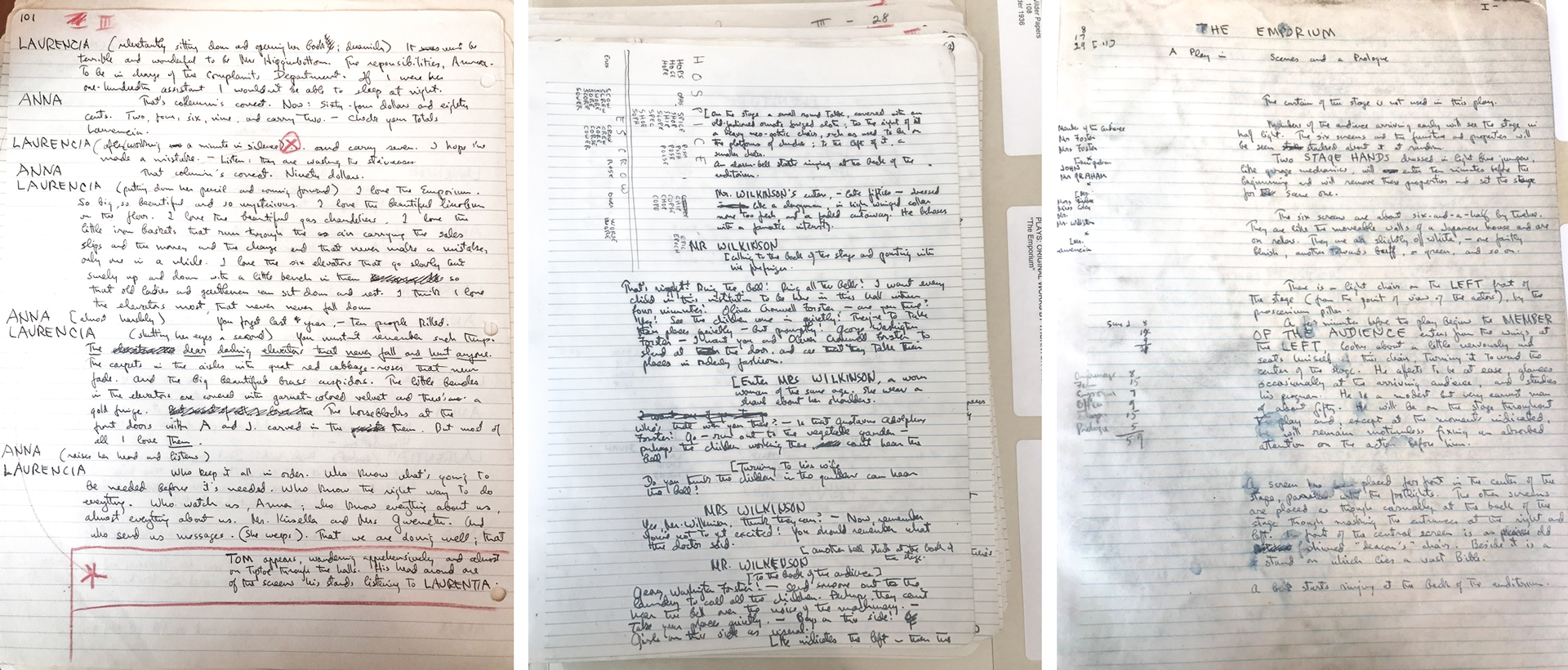
Another important clue to Wilder’s intention comes from his repeated reference to Kafka’s The Castle, which serves as a major point of inspiration. He explained the connection by identifying the ‘Kafka-Castle Character of the Emporium, [in] Tom’s agonized desire to belong to it.’ Like the mysterious K in Kafka’s (also unfinished) novel, the protagonist of The Emporium (described variously in the notes as ‘Tom’ or ‘John’) attempts to infiltrate the bureaucracy of a large institution, the secrets of which are ever out of reach.
Ironically, this perpetual seeking is reflected in Wilder’s attempt to finish The Emporium; his journals suggest that the deeper he explored the play, the less sure he was of its final form.
In some of the latest entries, dating 1954, Wilder begins to completely reconceive the central character: ‘It’s the Hero I haven’t got right…I’ve been too much drawn into the Kafka hero, the frustrated pre-condemned struggler. That’s not my bent; I’m not the stuff of which nihilists are made…I want to liberate myself from the Kafka hero, while at the same time retaining that element in Kafka which is real to me.’
In light of Wilder’s own doubt about the project, Kirk Lynn’s task becomes one of interpretation; he must filter the existing documents through the lens of what Wilder describes in his journals, attempting to compile the scenes into something that reflects the play that Wilder describes: at once mythic and absurd, straightforward yet cyclical, and always true to Wilder’s signature compassion for humanity. The result is The Emporium, a fascinating new play that has finally completed its decades-long journey to the stage.
Thornton Wilder’s The Emporium runs May 10 – June 2, 2024. Tickets are available here.



